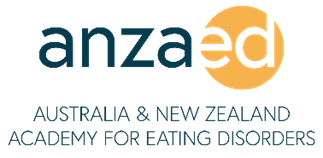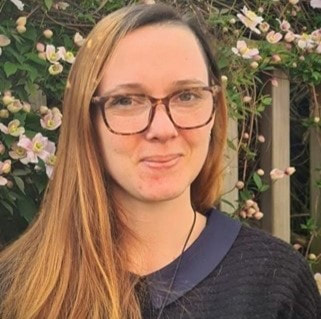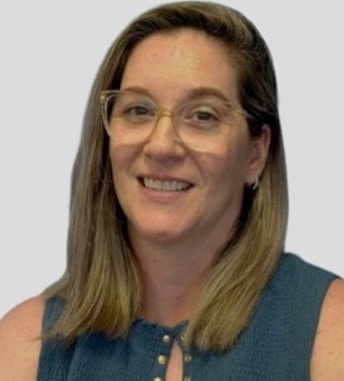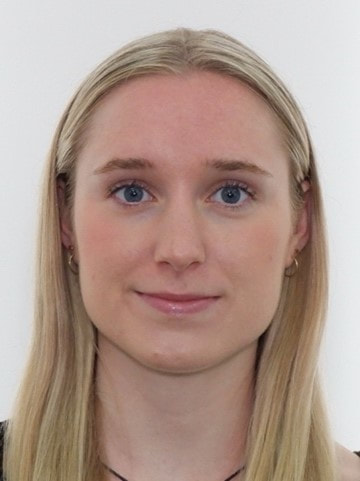Pre-Conference Workshops: Thursday 22 August 2024
Registration rates for pre-conference workshops can be found here. During the registration process you will have the opportunity to select the workshop/s you wish to attend.
|
Medical Issues in Children and Adolescents with Eating Disorders
Presenter: Raewyn Gavin Time: 9.00am - 12.30pm |
|
|
Workshop Overview: This workshop will focus on acute and long term medical issues which affect people under 18 years-of-age with eating disorders. It will include case-based activities and small group discussions.
|
Raewyn Gavin: I am a general paediatrician at Starship Children’s Hospital. At Starship we started a programme for inpatient management of Eating disorders in 2009. This is overseen by a multidisciplinary team. We have seen a steady increase in numbers of young people admitted with Eating Disorders in recent years, particularly during the COVID pandemic. I am interested in medical aspects of eating disorders, including special medical considerations in young people with ARFID, and those with other medical comorbidities. |
|
What I wish my Practitioner Knew
Presenters: Jess Dyson Time: 9.00am - 10.30am Workshop Overview: At Redefined Coaching, we are so thankful for therapists and health professionals whose contributions have been instrumental to helping get where each of us are as individuals, which is living a life of freedom, and in turn enabled us to help so many of clients today. One thing that we have recognised is that unless you have gone through an Eating Disorder personally, there are some things which can be hard to understand, because Eating Disorders become intertwined with the individual. We thought it would be helpful, informative and encouraging for therapists to hear from people who have been there. After countless conversations with therapists we know that supporting someone with an Eating Disorder can be disheartening and challenging, so we want to encourage therapists, through a lived experience point of view, around what is helpful as well as help up-skill them from these personal stories, so that your clients and families can get effective and the best help.
What this workshop will cover: Sharing Personal Experiences: Redefined Coaches personal lived experience stories where we discuss what was helpful vs unhelpful from our therapists and why and different experiences of various eating disorder treatments.; Therapist Influence: The power of a therapist being stronger than the Eating Disorder and holding hope; Building Rapport: The power of taking time to establish rapport and building trust before starting treatment; Navigating Therapy Triggers: How to identify and then navigate different triggers in therapy; for example -“Reducing appointments to biweekly is a good sign, but now I don’t feel sick enough and I am wasting my therapists time.”;“I am worried you will judge me for things I have done.”; “Even though I push you away I am listening and processing what you are saying please don’t give up on me.”; “Progress for me is triggering and really hard”; “I feel I have to show you that I have a problem to be validated.”; “Even though I am resistant I don’t want you to give up on me.”; Understanding Through Lived Experience: The experience through the eyes of someone with an Eating Disorder in different situations like meeting a new therapist, getting weighed, getting hospitalised, being diagnosed, being told we are severe and enduring and when support pulls away; A collective response from clients and people in the battle: A collection of responses from people via surveys and social media who are struggling around what helps make therapy easier without accomodating the Eating Disorder. Interpreting Communication - Confronting challenges which therapists/clients experience in treatment; What people really mean when they say different things; Struggle does not translate to chosen refusal rather being mentally imprisoned and unable to self advocate.; Differentiating between the ED talking vs the client; There is so much more going on than what people are saying and their physical presentation; Peoples actions are not a reflection of them but the consequences of their illness; Educational Empowerment: The power of educating people around the ‘why’ behind decisions and the power of science to help people challenge their ED; Interactive Learning: We have a series of role play exercises to engage and help build on the above learnings - Speaking unpoken thoughts / a view into their world; Empathy/Rapport building; Validating triggers; Phrases which are helpful in treatment; Group Discussions: Discussions around where people feel stuck in working with people and problem solving as a collective.; Live Question and Answer: (With people who have lived experience).
|
Enhancing Eating Disorder Services Through Effective Development of the Peer Workforce
Presenters: Meg Spriggs, Rachael Duck & Ruby Winter Time: 11.00am - 12.30pm Workshop Overview: Across the mental health sector, peer support provided by individuals with lived or living experience (LLE) contributes to greater empowerment, hope, connection, and identity building for tāngata whaiora (people seeking health). Within the eating disorder sector, this burgeoning field remains largely underutilized, leaving tāngata whaiora with fewer opportunities for self-development.
Effective use and engagement of LLE peer support for eating disorders, whether supporting affected individuals or their families/supporters, requires a supportive service infrastructure as well as mutual understanding and collaboration across the sector. The workshop is pitched at those seeking to enhance the impact of psychosocial support and care for people with eating disorders and those interested in systems change through engaging with the LLE peer workforce. We offer insight into how peer work is being implemented in Australia and look to a future where peer work is an established component of support services for people with eating disorders in Aotearoa New Zealand. Through a combination of interactive activities, examining exemplar services, and sharing of useful resources the workshop will:
|
|
Putting it into (evidence-based) practice: Moving eating disorder care from ‘neurodiversity informed’ to ‘neurodiversity affirming’
Presenters: Amy Talbot & Anna Rose Time: 9.00am - 12.30pm |
|
|
Workshop Overview: Awareness of the concept of neurodiversity has increased dramatically in recent years in eating disorder spaces due to the recognition of the intersection of neurodivergence and feeding and eating differences and disorders. The philosophical foundation of the neurodiversity paradigm has inspired critical discourse of the traditional eating disorder research and treatment landscape, leading to calls for a radical rethink of eating disorder care such as that outlined in the position paper Eating Disorders and Neurodivergence: A Stepped Care Approach (Cobbaert & Rose, 2023). These conversations have challenged the appropriateness and effectiveness of traditional evidence-based feeding and eating disorder formulations, treatments, and supports for neurodivergent people. Traditional eating disorder treatments and supports are grounded in neuronormative assumptions, meaning that they privilege neurotypical ways of being over neurodivergent ways of being. As such, they do not adequately recognise, understand, accommodate, or respect the unique feeding and eating experiences of neurodivergent individuals. These radical challenges to the status quo pose significant challenges for eating disorder clinicians as they endeavour to safely navigate the delivery of person-centred, evidence-based, effective and neurodiversity affirming eating disorder care.
This workshop aims to support eating disorder clinicians to step into neurodiversity affirming practice confidently, compassionately, ethically, and effectively. Drawing on research, clinical expertise, and lived experience perspectives, this workshop will guide participants through the process of co-creating eating disorder formulations, making treatment decisions (including adaptations to traditional evidence-based treatments), and delivering supports that align with the principles of neurodiversity affirming care. |
Dr Amy Talbot (she/her) is the director, founder and senior clinical psychologist at The Talbot Centre, a leading centre of excellence and innovation in healthcare in Sydney’s Northwest. In 2018 she was awarded Australian Psychologist of the Year at the inaugural Australian Allied Health Awards. Dr Talbot provides clinical consultation, supervision and training to clinicians Australia wide who work with patients and families affected by eating and feeding disorders, anxiety, and obsessive compulsive and related disorders. With over a decade of research and clinical proficiency, Dr Talbot has disseminated knowledge through published articles, captivating keynotes, and impactful workshops, elevating the understanding and treatment of eating and feeding disorders across the lifespan. She has a special interest in formulation driven, client-centred intervention for neurodivergent individuals with eating and feeding differences or concerns.
Anna Rose (they/them) is a proud neurodivergent, queer Accredited Practising Dietitian and Credentialled Eating Disorder Clinician with lived experience of a restrictive eating disorder and parenting neurodivergent children. Anna’s clinical dietetic experience largely centred on supporting neurodivergent children and adolescents, and their families, who were experiencing feeding and eating disturbances and disorders. Anna is currently undertaking a PhD at Bond University where they are exploring the impact of neuronormative feeding and eating interventions on neurodivergent children and families. |
|
Eating Disorders and Trauma: the how and why of simultaneous treatment
Presenter: Latarsha (Tarsh) Green Time: 9.00am - 12.30pm |
|
|
Workshop Overview: Trauma is a known risk factor for developing an eating disorder. Understandably, when an individual’s control and body is violated through sexual trauma they may look to take back control through restricting, purging, bingeing or exercising. In the case of eating disorders precipitated by sexual trauma, these behaviours function in much the same way as other maladaptive coping behaviours commonly resulting from trauma. They provide a sense of safety and control, regulate emotions and prevent the updating of trauma beliefs and memories. Without addressing both eating and trauma symptoms simultaneously neither can be fully resolved. This workshop aims to assist clinicians working with individuals with trauma and eating disorders. Clinicians will learn to conceptualize eating disorder behaviours as a symptom of trauma and to create a framework for treating PTSD due to sexual trauma alongside an eating disorder. This framework will draw upon cognitive behavioural therapies and models.
Learning outcomes:
|
Latarsha (Tarsh) Green is a Senior Clinical Psychologist at the South Island Eating Disorders Service. She works with primarily with adults and has a background in treating anxiety and trauma. She is experienced in treating eating disorders in conjunction with PTSD. Her main modalities for treatment include cognitive behavioural therapy, cognitive processing therapy, metacognitive therapy, schema therapy and eye movement desensitisation and reprocessing therapy. |
|
Supercharge Your Eating Disorder Research Productivity
Presenter: Jennifer J. Thomas Time: 9.00am - 12.30pm |
|
|
Workshop Overview: Academics today are too often overcommitted and overwhelmed, and eating disorder researchers are no exception. Our email inboxes are bulging, our phones are pinging, and without thoughtful planning our long-term projects may gather dust as we join endless Zooms. In 2023, the the average knowledge worker spent 2.6 hours per day responding to email and 2.4 hours per day attending meetings. This leaves little time to make meaningful progress on important long-term goals such as planning programmatic research, writing compelling grants, and publishing key findings, not to mention maintaining a life outside of work. It doesn’t have to be this way. In this workshop, we will discuss proven strategies for supercharging your research productivity across career stages. Through case studies, videos, and experiential exercises, you will learn to prioritize the projects that are most important to you, manage the contemporary onslaught of digital communication, set aside recurring time for deep work. Key strategies will be drawn from academic productivity expert Cal Newport’s critically acclaimed books (Deep Work, A World Without Email, and Slow Productivity), and applied specifically to the eating disorder research context.
|
Dr. Jennifer Thomas is the Co-director of the Eating Disorders Clinical and Research Program at Massachusetts General Hospital, and an Associate Professor of Psychology in the Department of Psychiatry at Harvard Medical School. Dr. Thomas’s research focuses on avoidant/restrictive food intake disorder and other atypical eating disorders, as described in her four books — most recently Cognitive-Behavioral Therapy for Avoidant/Restrictive Food Intake Disorder: Children, Adolescents, and Adults; and The Picky Eater’s Recovery Book: Overcoming Avoidant/Restrictive Food Intake Disorder. She is principal investigator on several studies investigating the neurobiology and treatment of avoidant/restrictive food intake disorder, funded by the U.S. National Institute of Mental Health and private foundations. |
|
Navigating the intersection between Relative Energy Deficiency in Sport & Eating Disorders
Presenters: Megan Ogilvie, Dane Baker, Penny Matkin-Hussey & Kim Abbott Time: 1.30pm - 5.00pm |
|
|
Workshop Overview: Relative Energy Deficiency in Sport (REDs) is defined as ‘a syndrome of impaired physiological and/or psychological functioning experienced by female and male athletes that is caused by exposure to problematic (prolonged and/or severe) Low Energy Availability (LEA)’. LEA occurs when there is a disparity between an athletes’ energy intake and exercise load. Inadequate energy intake can be intentional or unintentional.
Mutual symptoms of both REDs and eating disorders include hormonal dysregulation, impaired gastrointestinal function, impaired bone health, mood disturbances & cardiovascular complications. A spectrum of eating behaviours in athletes has been described, which range from optimal nutrition to disordered eating to a clinical eating disorder. Disordered eating and eating disorders can be the cause of, or the result of, Relative Energy Deficiency in Sport. In this workshop, through presentations, case studies & group discussions, we will explore:
|
Megan Ogilvie is a reproductive endocrinologist who is a director of ERH Associates. Megan has particular reproductive endocrine interests in menopause, polycystic ovarian syndrome, gender-affirming care, as well as athlete hormone health and energy deficiency. Megan was a founding member of WHISPA in 2017 (a medical advisory board to High Performance Sport New Zealand) and is on the medical board of Talk Peach (a charity for gynaecological cancer). Megan is passionate about educating people about their hormones and wellbeing.
Dane Baker is a Performance Dietitian at Axis Sports Medicine where is works as part of a multidisciplinary REDs clinic. He has worked extensively with New Zealand's elite athletes and organisations over the past 15 years (Chiefs, Blues, Black Ferns 7s, NZ Hockey & NZ Swimming). He was the NZ team dietitian for the Rio Olympics and Gold Coast commonwealth games. He previously held a leadership role as part of WHISPA, a specialist group dedicated to optimising female health and performance at High performance Sport. He is an active researcher in the field of RED-s and lecturer at the University of Otago.
Penny Matkins Hussey is undertaking her PhD with the Department of Human Nutrition at the University of Otago. Her research interests are female athlete health, in particular recovery from Relative Energy in Sport (REDs). Her current work is investigating the potential use of continuous glucose monitors (CGMs) as a novel tool for the identification and monitoring of REDs, which is being undertaken in collaboration with Axis Sports Medicine, New Zealand, and Bond University, Australia
Kim Abbott is a New Zealand Registered Dietitian & Accredited Sports Dietitian. She holds a Masters in Sport & Exercise Science and an International Olympic Committee (IOC) Diploma in Sports Nutrition. She has over 20 years of dietetic experience. She currently works as a Dietitian at the Waikato Specialist Eating Disorder Service. She is also employed as a Performance Nutritionist at High Performance Sport New Zealand, working with elite athletes in the sports of triathlon, beach volleyball, canoe racing & athletics. |
|
Supporting Clinicians in Managing Adolescent Violence in the Context of Eating Disorder Treatment
Presenter: Rhiannon Griggs & Bliss Jackman Time: 1.30pm - 5.00pm |
|
|
Workshop Overview: Eating disorder treatment, such as family-based treatment, can lead to a temporary increase in distress for the adolescent and family early in treatment. It is not uncommon for this distress to be expressed through uncharacteristic violence or aggression. Adolescent violence in the context of eating disorders differs to broader constructs of family violence. Experience in practice, and discussion with public-sector services, suggests that adolescent violence is an increasing concern for families and clinicians participating in eating disorder treatment. Families often experience shame about the emergence of adolescent violence, which may prevent disclosure to their treatment team. Concurrently, clinicians and services often feel unclear about how to assess and support the young person and family when adolescent violence and aggression occur within an eating disorder treatment framework. This can lead to increased risk in the home, as well as hopelessness and low parental self-efficacy.
In response, the Victorian Centre of Excellence in Eating Disorders (CEED) have developed this workshop and accompanying resources to promote effective response and management of high distress and adolescent violence in the context of eating disorder treatment. This workshop has been codesigned with CEED lived experience workforce, including both consumer and carer perspectives. It is further informed by consultation with service providers at both a state and national level. The primary aims of this workshop are to:
|
Rhiannon Griggs holds a Master of Social Work and has extensive experience working with people impacted by eating disorders. Throughout her career, Rhiannon has worked across both inpatient and outpatient settings and is passionate about delivering high quality, person-centred care. Rhiannon operates from curious and compassionate stance and is a strong advocate for the inclusion of people’s support networks in eating disorder treatment. In her current role as a Senior Clinician at The Victorian Centre of Excellence in Eating Disorders (CEED), Rhiannon has contributed to the child, youth, and adult teams and thoroughly enjoys supporting clinicians to increase their knowledge and confidence when providing evidence-based treatment to people impacted by eating disorders.
Bliss Jackman is the CEED Team Leader – Lived Experience, having supported her daughter with Anorexia Nervosa and understanding the distinct challenges of the caring role on the family and support system. She draws on her years of caregiving experience, a previous career in finance, and her current studies in psychology and family therapy to bring a depth of understanding and compassion to her work in evaluation and research. Bliss is also a peer researcher and has held various leadership positions, currently serving on several Department of Health (Victoria) committees and state-wide leadership teams. She is dedicated to integrating the voice of lived experience at every level of the mental health system. Bliss is passionate about family-inclusive practices, encouraging services to engage all networks and supports to achieve improved outcomes for individuals experiencing mental health challenges and their loved ones. |
|
Advanced Strategies in Cognitive-Behavioral Therapy for Avoidant/Restrictive Food Intake Disorder
Presenter: Jennifer J. Thomas Time: 1.30pm - 5.00pm |
|
|
Workshop Overview: Preliminary open trials suggest that cognitive-behavioral therapy for ARFID (CBT-AR) leads to remission for at least half of children, adolescents, and adults with ARFID. What about the other half? Some of them may require adaptations from the original manual to fully realize the benefits of CBT-AR. In clinical practice at Massachusetts General Hospital, our team has identified four clinical scenarios that may require at least some adaptations from the manual as currently written:
In this workshop, we will explore advanced CBT-AR strategies that can be used to support patients who have these characteristics. The workshop will include an overview of recent research findings as well as clinical case examples. We welcome audience members to come with questions about specific cases from their own clinical practice and will leave ample time for discussion throughout the workshop. Note: This workshop will be most useful for clinicians who have already attended an introductory training in cognitive-behavioral therapy for ARFID (CBT-AR) or are familiar with the CBT-AR manual and are already using the treatment in their practice. |
Dr. Jennifer Thomas is the Co-director of the Eating Disorders Clinical and Research Program at Massachusetts General Hospital, and an Associate Professor of Psychology in the Department of Psychiatry at Harvard Medical School. Dr. Thomas’s research focuses on avoidant/restrictive food intake disorder and other atypical eating disorders, as described in her four books — most recently Cognitive-Behavioral Therapy for Avoidant/Restrictive Food Intake Disorder: Children, Adolescents, and Adults; and The Picky Eater’s Recovery Book: Overcoming Avoidant/Restrictive Food Intake Disorder. She is principal investigator on several studies investigating the neurobiology and treatment of avoidant/restrictive food intake disorder, funded by the U.S. National Institute of Mental Health and private foundations. |
|
Clinical Management of Severe and Enduring Anorexia Nervosa
Presenter: Phillipa Hay Time: 1.30pm - 5.00pm |
|
|
Workshop Overview: The aim of this workshop is to increase the understanding and enhance skills of participants in the care of people with severe and enduring anorexia nervosa (SE-AN). The workshop will be conducted over 3 hours with a 30-minute break. The workshop will begin with a presentation of the current status of knowledge regarding SE-AN, its conceptualisation and its treatment. This will lead into a presentation on principles of management using a recovery-oriented practice model and a detailed interactive presentation on how therapies have been adapted for SE-AN. This will be interleaved with case vignettes, small group discussions & role plays to illustrate and practice specific management elements. The skills that will be presented include forming a therapeutic alliance over a lengthy engagement period with extended motivational interviewing and tailoring therapy to the clients stage of change, promoting autonomy through a collaborative ‘goal setting’ process, utilisation of psycho-education and supportive psychotherapy, addressing interpersonal and social deficits and affect regulation through expansion of self-schema and other techniques, medical safety, and attaining behavioural change with revised outcomes of quality of life rather than weight restoration. The workshop will close with an open 'question & answer' panel session with an opportunity to discuss participant cases.
|
Professor Hay is a Psychiatrist and leading mental health researcher. She is Foundation Chair of Mental Health at Western Sydney University (WSU) and Director for Mental Health Research for the South Western Sydney Local Health District. She spent her formative life and professional years in the Greater Wellington region - Te Upoko o Te Ika a Maui during which she published the first of now over 400 scientific papers She has been a senior Investigator on all major randomised controlled trials of therapy for adults with anorexia nervosa in Australia and others in bulimia nervosa and binge eating disorder. Her research has been translational, guided policy and practice and award winning, including in 2015, the Lifetime Leadership Award from the ANZ Academy for Eating Disorders, and in 2020 the RANZCP Senior Research Award. She has also received three WSU Vice Chancellor Excellence Awards (2018, 2019, 2020) as a member of interdisciplinary teaching and research groups. She regularly supervises and conducts workshops in specific psychological therapies, including Specialist Supportive Clinical Management and Cognitive Behaviour Therapy for people with SE-AN. |
|
Thinking about a research project? An introduction for clinicians and others keen to get started
Presenter: Jennifer Jordan Time: 1.30pm - 5.00pm |
|
|
Workshop Overview: This pragmatic workshop is an introductory level workshop with no prior research experience required. It is aimed at people, particularly clinicians, who are interested in research but may have forgotten undergraduate lectures, or who are not sure how to go about developing a specific project in in their clinical setting or workplace.
Jenny will start with a big picture overview of key ethical, contextual, and regulatory frameworks to consider in planning a study, before moving on to nuts-and-bolts procedures needed to deliver a research project. The focus will be on small scale or simpler research designs. The importance of assembling a team with the right expertise, along with minimum resourcing and organisational support will be covered. She will illustrate with examples from her experience with clinically focussed research projects. Tips and pitfalls will be discussed. This is intended to be an informal, interactive workshop, with the opportunity to discuss and brainstorm research ideas from participants. Some caveats:
Learning objective:
|
Dr. Jennifer Jordan has been an investigator / therapist on clinical trials for mood and eating disorders for 26 years. She has also had the opportunity to become involved with other types of research in different treatment settings, “big data” projects, and national surveys in the Eating Disorders Genetics Initiative (EDGI). While the university clinic has excellent research infrastructure, she is also familiar with the trials and tribulations of conducting research in busy real-world clinical settings without those resources, including while juggling clinical work. She has authored/co-authored 124 peer-reviewed publications and on editorial boards for IJED and Eating Behaviors. |



















